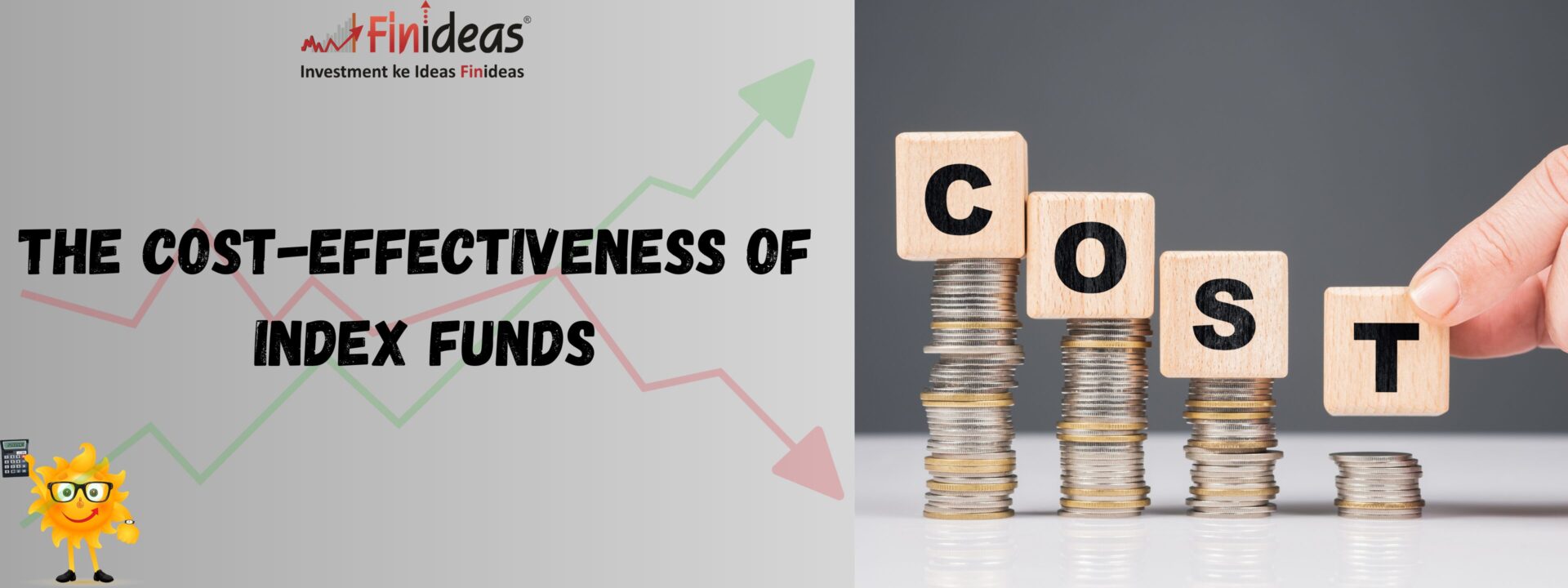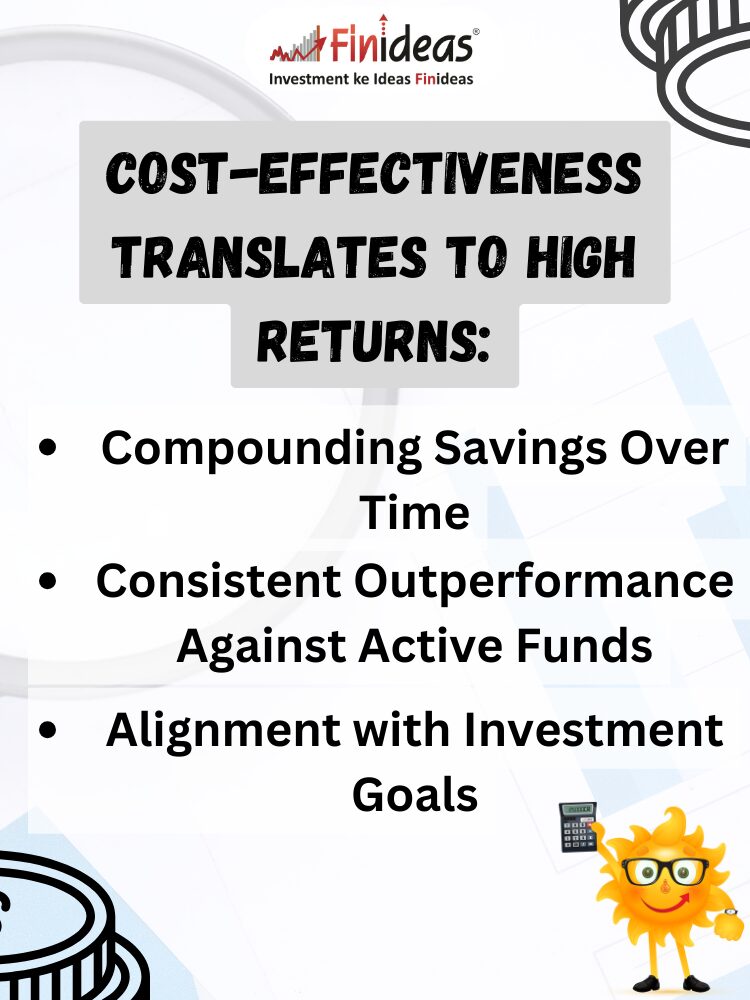The cost effectiveness of index funds
Introduction:
Welcome to the dynamic world of investing, where the pursuit of low costs and high returns is a perpetual quest for investors. Today, we’re shining a spotlight on a champion in the investment arena – the index fund. Join us as we delve into the reasons why index funds are celebrated for their low costs and how this cost-effectiveness contributes to potentially high returns for investors.
Understanding the Foundation: What are Index Funds?
Let’s start with the basics. Index funds are like the unsung heroes of the investment world, a type of mutual fund or exchange-traded fund (ETF) designed to replicate the performance of a specific market index, such as the Nifty50. Instead of relying on active management to pick individual stocks, index funds aim to mirror the overall performance of the chosen index by holding the same stocks in the same proportion.
Reasons for the low cost
Low Expense Ratios
Now, let’s talk numbers. The primary reason why index funds are celebrated is their low expense ratios. Think of expense ratios as the annual fees you pay, expressed as a percentage of assets under management (AUM), to cover the fund’s operating expenses. Index funds consistently boast lower expense ratios compared to their actively managed counterparts.
Minimized Turnover:
Active fund managers are like frenetic traders in a bustling market, buying and selling securities within their portfolios. This activity leads to higher trading costs and capital gains taxes. On the flip side, index funds have a more chill approach. They have lower turnover since they only need to adjust their holdings when there are changes in the underlying index. Lower turnover translates to reduced trading costs and tax efficiency.
Reduced Management Fees:
Ever wondered why active funds seem to have higher costs? It’s often because they need skilled fund managers and extensive research teams. Index funds, in contrast, follow a predetermined set of rules based on the index they track, waving goodbye to constant management decisions. This results in significantly lower management fees. If the prospect of investing in an index fund intrigues you, you should explore the ILTS strategy.
No Need for Extensive Research:
Picture this: active funds spending heaps of resources on researching and selecting individual stocks. Now, imagine index funds simply replicating the index’s composition, sidestepping the need for extensive research and analysis. That’s right – less research, less cost.
Cost-Effectiveness Translates to High Returns:
Compounding Savings Over Time:
Now, let’s dive into the magic of compounding. Lower costs mean investors keep more of their returns since a smaller percentage is gobbled up by fees. Over the long term, this compounding effect can result in significant savings – it’s like a snowball effect, but for your money.
Consistent Outperformance Against Active Funds:
Studies galore have shown that, on average, index funds outperform actively managed funds over the long haul. While individual active funds might occasionally beat the market, the steady consistency of low-cost index funds delivering competitive returns is a compelling argument for savvy, cost-conscious investors.
Alignment with Investment Goals:
For those eyeing long-term wealth accumulation and retirement planning, index funds are like a trustworthy companion. The low-cost structure aligns seamlessly with these objectives. The steady growth of investments, combined with minimal fees, sets the stage for achieving financial goals.
Conclusion:
In the investing universe, where the allure of high returns often dances with high costs and risks, index funds stand out as a compelling alternative. They offer a straightforward and cost-effective approach to building wealth over time. By minimizing fees and aligning with the market’s performance, index funds provide investors with the opportunity to enjoy the benefits of low costs and, consequently, potentially high returns. As the financial landscape continues to evolve, embracing the cost-effectiveness of index funds may just be the prudent decision for investors seeking a reliable and efficient investment strategy.
As we explore the world of index funds and their cost-effectiveness, what factors do you consider most crucial when choosing an investment strategy? Comment Down Below
Happy Investing!
This article is for education purpose only. Kindly consult with your financial advisor before doing any kind of investment.


